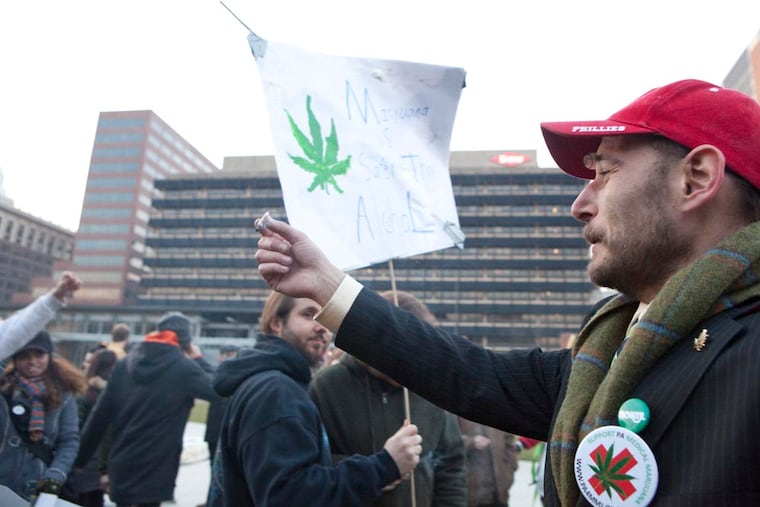People can now get proof of their federal marijuana pardons, 5 months after the program was announced
The Department of Justice announced the online application for a “certificate of proof” of the pardons on Friday.

People with federal marijuana possession convictions can finally apply for certificates of proof for the pardons announced by President Joe Biden late last year.
The Department of Justice announced the online application for a “certificate of proof” of the pardons on Friday. That comes five months after Biden announced the pardons for federal simple possession convictions, which the White House said impacts about 6,500 Americans.
According to the online application, eligible individuals will be able to submit documentation and “receive a certificate indicating the person was pardoned on Oct. 6, 2022, for simple possession of marijuana.” U.S. citizens and others legally in the country who were charged or convicted in federal or D.C. court before Oct. 6 are eligible.
One of those impacted is Chris Goldstein, a local regional organizer for the National Organization for the Reform of Marijuana Laws. Goldstein, a former Philly.com marijuana legalization columnist, is applying for his certificate of proof showing a 2014 federal possession conviction has been forgiven. The wait to apply was a long one.
“It was getting a little long in the tooth,” Goldstein said. “It was getting concerning.”
Goldstein was convicted following a 2013 arrest at a protest on Independence Mall. Known as the “Smoke Down Prohibition” protests, those events were held monthly at the time and were designed to draw attention to cannabis legalization. Participants would smoke marijuana en masse on federal property. Goldstein was an organizer.
After his conviction, a federal magistrate judge fined Goldstein $3,000, sentenced him to two years of supervised probation, and ordered that he stay 100 feet from Independence National Historical Park when the marijuana protests were held.
Since then, Goldstein has not attempted to travel outside the country because his federal conviction could cause trouble for him when crossing borders, even into Canada.
“You self-censor yourself, in a way,” Goldstein said. “There are things I haven’t done because I know it would have been a problem.”
The goal of the pardon program, Biden said last year, is to “help relieve the consequences arising from these convictions,” which include impacts on employment, housing, and education. Additionally, Biden noted that the rate at which Black and brown people are arrested for marijuana possession is disproportionately high despite white people using marijuana at similar rates.
But, as Goldstein noted, a pardon is not the same as an expungement. Having the certificate of proof for his pardon, he said, is an answer for his record, should he need one. It doesn’t, however, clear his record, or the record of anyone else who receives one. That would take a bill passed by Congress.
“Pardons for people like me are the minimal level, and it’s as good a small step as you can make,” Goldstein said. “But it does highlight the fact that that’s as far as the president can go.”
In its Friday announcement, the Justice Department noted that Biden’s pardon does not impact people with state-level marijuana convictions. Biden last year encouraged state governors to pursue similar pardon programs. It’s not clear how many people in Pennsylvania and New Jersey are impacted by Biden’s program.
In Pennsylvania, former Gov. Tom Wolf launched the Marijuana Pardon Project in September. That effort was designed to help Pennsylvanians with minor marijuana convictions, and potentially could have helped thousands of people.
About 2,600 people applied for the program during its September 2022 application window. Only 232 people, or less than 10% of applicants, were pardoned as part of the program.